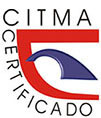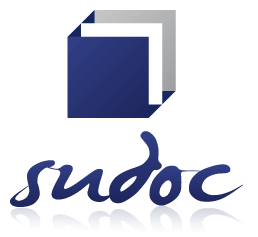Adaptations of the lexical-semantic level in nouns of Yoruba origin in practitioners of the complex Ocha-Ifá. Santa Clara
Keywords:
lexical-semantic level, nouns of Yoruba origin, Ocha-IfáAbstract
The article analyzes a series of adaptations in nouns of Yoruba origin inserted in Cuban Spanish through the Lucumí legacy of practitioners of the Ocha-Ifá complex in Santa Clara at the lexical-semantic level. The methods and techniques used were: from the theoretical level: analytic-synthetic, inductive-deductive; from the empirical level: bibliographic review, interview, survey and observation. A predominance of stability (formal and semantic) was observed; phenomena related to the extension, reduction and change of meanings and relations of synonymy, antonymy, paronymy, homonymy and meronymy were identified among the corpus words. As conclusions, it was found that there is a high degree of adaptation to the characteristics of our national variant of the language from the contexts and social spaces that occupy the daily life of the practitioners.
Downloads
References
ALONSO, G. Y FERNÁNDEZ, A. L. (1977). Antología lingüística cubana. La Habana: Editorial de Ciencias Sociales.
BASCOM, W. R. (1957). The Yoruba in Cuba. Nigeria Magazine, 37: 10-19.
BASCOM, W. R. (1969). Ifá Divination. Communication between gods and men in West Africa. Indiana University Press.
BETANCOURT, V. (2019). El legado ritual lúkúmí. Lengua y liturgia afrocubanas. Colección Iroko, Aurelia Ediciones.
BOWEN, J. (1858). Grammar and dictionary of the yoruba language. En: https://archive.org/det ails/
CABRERA, L. (1957). Anagó: Vocabulario lucumí. La Habana: Editorial CR.
CASTELLANOS, J. & CASTELLANOS, I. (2003). Cultura afrocubana (en 4 tomos). Miami: Universal.
CROWTHER, S. (1852). Vocabulary of the Yoruba language. En: http://www.archive.org/de tails/vocabularyofyoru00crow.
DE GRANDA, G. (1974). Planteamientos y necesidades actuales en los estudios lingüísticos afrohispanoamericanos. Anuario de Letras. Lingüística y Filología, 12: 53-82.
GÓMEZ, N. MARTÍNEZ, M. & RIVERO, G. (enero-abril, 1990). Estudio de la presencia de remanentes lingüísticos de origen lucumí (yoruba) en la región central de Cuba: zona de Placetas, Villa Clara. Islas (95): 159-179.
GUANCHE, J. (2008 [1996]). Componentes étnicos de la nación cubana. La Habana: Ediciones Unión.
GUANCHE, J. (2009). Africanía y etnicidad en Cuba. La Habana: Editorial de Ciencias Sociales.
MENÉNDEZ, L. (2016 [2002]). Estudios afrocubanos. Selección de lecturas. La Habana: Editorial Félix Varela.
ORTIZ, F. (1922). Los afronegrismos de nuestro lenguaje. Revista Bimestre Cubana, volumen XVII: 321-336.
Oxford (1913). Dictionary of the Yoruba Language. Church Missionary Society Bookshop.
PESSOA, Y. (2009). Las lenguas africanas en la constitución del portugués brasileño: la participación de la mujer negra. Seminario Regional Las mujeres afrodescendientes y la cultura latinoamericana: identidad y desarrollo. Programa de las Naciones Unidas para el Desarrollo (PNUD).
VALDÉS, G. (2017). Particularidades de la lexicografía afrohispánica. RUIZ, L. (edit.) Estudios de lexicología y lexicografía. Santiago de Cuba: Centro de Lingüística Aplicada.
VALDÉS, G. (enero-abril, 2018). Lexicografía y estudios afrohispánicos: el dato canónico de entrada. Islas 60(189): 28-51.
VALDÉS, S. (1998). Lengua nacional e identidad cultural del cubano. La Habana: Editorial de Ciencias Sociales.
VALDÉS, S. (2015). La hispanización de América y la americanización de la lengua española. La Habana: Editorial UH.
VALDÉS, S. (2016). Lenguas africanas y el español de América. La Habana: Editorial de Ciencias Sociales.
Downloads
Published
How to Cite
Issue
Section
License

This work is licensed under a Creative Commons Attribution-NonCommercial 4.0 International License.
Usted es libre de:
Compartir — copiar y redistribuir el material en cualquier medio o formato
Adaptar — remezclar, transformar y construir a partir del material
La licenciante no puede revocar estas libertades en tanto usted siga los términos de la licencia
Bajo los siguientes términos:
Usted es libre de:
Atribución — Usted debe dar crédito de manera adecuada, brindar un enlace a la licencia, e indicar si se han realizado cambios. Puede hacerlo en cualquier forma razonable, pero no de forma tal que sugiera que usted o su uso tienen el apoyo de la licenciante.
NoComercial — Usted no puede hacer uso del material con propósitos comerciales.
No hay restricciones adicionales — No puede aplicar términos legales ni medidas tecnológicas que restrinjan legalmente a otras a hacer cualquier uso permitido por la licencia.


















